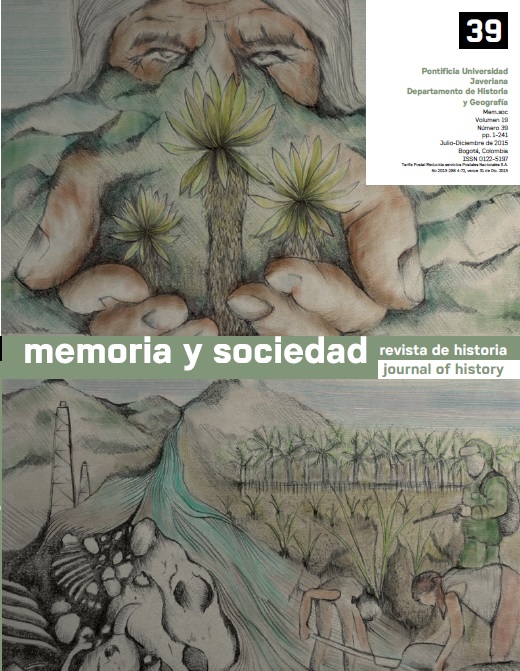Abstract
Large-scale coal mining in the downtown Cesar area has led to the environmental degradation of the resources that sustain life and the dismantling of some of the most iconic cultural practices of the community of Boqueron, a population that has faced forced displacement since 2010 due to air pollution in the area. This article is a theoretical reconstruction of the case that 1) presents Boqueron as a place through historicizing the mutually constitutive relationship between natural ecosystems and productive practices, festivals and the community beliefs; 2) establishes how tenure regimes and the land use during the second half of the twentieth century allowed the Boqueron deterritorialization by the progressive deterioration of ecosystems that used to give sustenance to the community; 3) develops some guidelines for encouraging national academic sectors to contribute to the establishment of a critical and multidimensional methodology on the impacts of large-scale mining. When presenting a theoretical approach to the Boqueron’s case, we argue that historicizing the places built by local communities is an essential strategy to resist the phenomena of dispossession and forced displacement in Colombia, which are intrinsic features of extractivism.The journal Memoria y Sociedad is registered under a Creative Commons Attribution 4.0 International Public License. Thus, this work may be reproduced, distributed, and publicly shared in digital format, as long as the names of the authors and Pontificia Universidad Javeriana are acknowledged. Others are allowed to quote, adapt, transform, auto-archive, republish, and create based on this material, for any purpose (even commercial ones), provided the authorship is duly acknowledged, a link to the original work is provided, and it is specified if changes have been made. Pontificia Universidad Javeriana does not hold the rights of published works and the authors are solely responsible for the contents of their works; they keep the moral, intellectual, privacy, and publicity rights.
Approving the intervention of the work (review, copy-editing, translation, layout) and the following outreach, are granted through an use license and not through an assignment of rights. This means the journal and Pontificia Universidad Javeriana cannot be held responsible for any ethical malpractice by the authors. As a consequence of the protection granted by the use license, the journal is not required to publish recantations or modify information already published, unless the errata stems from the editorial management process. Publishing contents in this journal does not generate royalties for contributors.

